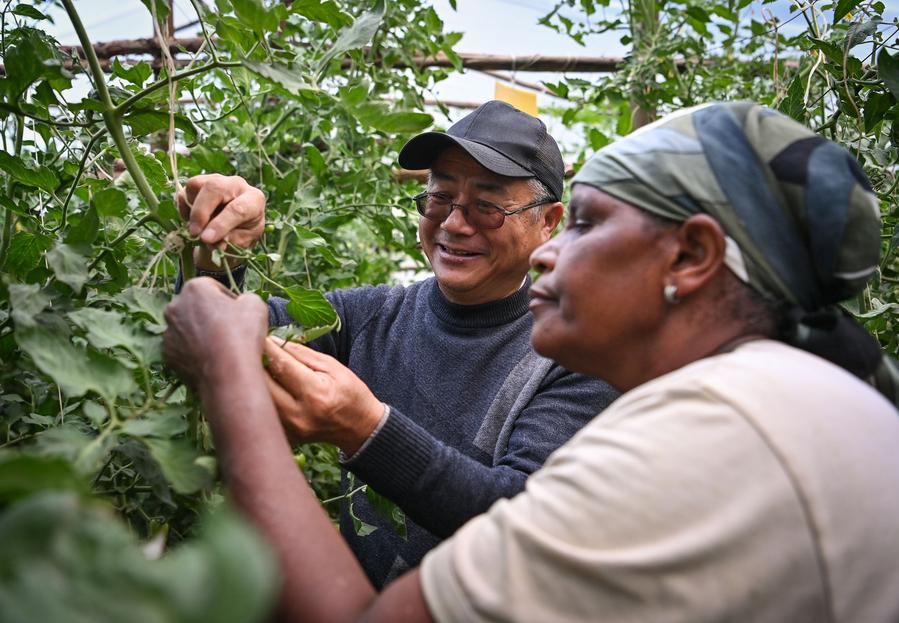Xiplomacy: China, Kenya join hands on path to modernization


AGRICULTURAL COOPERATION
In Matangi Tisa Village in Kenya's Nakuru County, home to Kenya's first demonstration village for China-Africa agricultural development and poverty reduction, people are busy planting tomatoes with the help of Chinese experts.
For years, local tomato farming had been plagued by bacterial wilt, but villagers are hopeful of a bountiful harvest this season.
When the Chinese and Kenyan presidents met during the Summit of the Forum on China-Africa Cooperation (FOCAC) held in Beijing last year, Xi said "the two sides should closely synergize the high-quality Belt and Road cooperation with Kenya Vision 2030, build an East African connectivity hub and industrial belt, and strengthen cooperation in such areas as digital economy, new energy, economy, trade, poverty reduction and agriculture development."
Among the 10 partnership actions announced by Xi at the 2024 FOCAC Summit is the partnership action for agriculture and livelihoods. Under this initiative, China has committed to building 100,000 mu (about 6,670 hectares) of standardized agricultural demonstration areas, sending 500 agricultural experts, and establishing a China-Africa agricultural science and technology innovation alliance.
These commitments are injecting fresh momentum into Africa's efforts toward agricultural modernization and poverty alleviation.
In a recent interview with Xinhua, President Ruto praised China's success in lifting hundreds of millions of people out of poverty, calling China's experience highly relevant for African countries still grappling with poverty. He expressed hope to leverage Chinese expertise to advance Kenya's agricultural modernization and industrialization.
In Kenya's Siaya County, 69-year-old farmer Peter Onyango was watching the clear waters flow through newly dug irrigation channels, eagerly anticipating a good harvest. Built by a Chinese company along the lower reaches of the Nzoia River, this irrigation project, the largest of its kind in Kenya, has significantly boosted local irrigation capacity.
Officially operational in April, the canal is expected to enhance food security. When visiting the project in January, Ruto said that the new infrastructure would play a major role in advancing Kenya's economic transformation by boosting agricultural productivity.
























